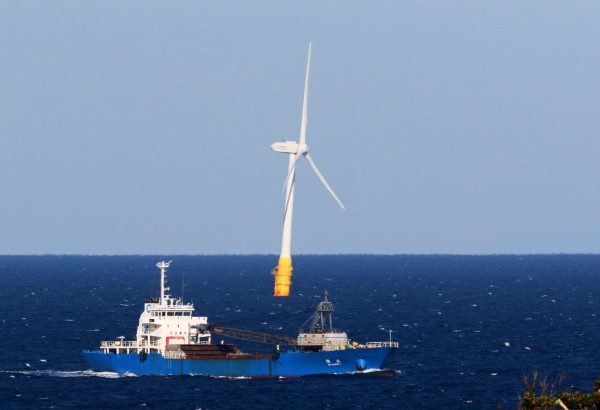ASEAN’s regional gross domestic product rose to US$3.6 trillion in 2021 and is set for further growth, with the transformation of the region from a manufacturing base into a significant consumer base and innovation hub. Though the COVID-19 pandemic restricted the movement of people, goods and resources, it also accelerated the adoption and expansion of digital services like e-commerce and cashless transactions.
The confluence of geopolitical anxieties and uncertainties about growth prospects have sparked a surge of cooperative initiatives in the region. They include Japan’s Free and Open Indo-Pacific initiative, the Indo-Pacific strategies of the European Union and the United Kingdom and the United States’ Indo-Pacific Economic Framework. These strategies align with the ASEAN Outlook on Indo-Pacific released in 2019, wherein dialogue partners and neighbouring countries acknowledge the importance of ‘ASEAN centrality’ in shaping the contours of the region, while recognising growth opportunities.
ASEAN’s economic growth is now driven in part by its digitally savvy younger generation. This positive momentum reflects ASEAN’s potential for future progress. But there are a number of challenges that need to be addressed, including disparities in the development of physical, human and social capital across countries, as well as between urban and rural areas and different industries.
Despite Japan having one of the world’s most aged demographic profiles, it possesses advanced technologies and significant human and social capital. These assets position Japan as a crucial partner in harnessing ASEAN’s potential. ASEAN and Japan have unique and complementary advantages. Their economic cooperation should focus on deepening integration and fostering collaborative innovations for their mutual benefit.
ASEAN and Japan should view each other as indispensable partners in their economic development journeys. As ASEAN and Japan commemorate the 50th anniversary of dialogue and cooperation, they are advancing discussions on the future direction of their partnership with a strong emphasis on ‘co-creation’. The June 2023 interim report on the ASEAN–Japan Economic Co-creation Vision emphasises that ASEAN is an equal partner to Japan and prioritises co-creation of a mutually beneficial economy by promoting open innovation and developing human resources.
For instance, the interim report asserts that fostering youth exchanges between ASEAN and Japan and capturing the entrepreneurship of both regions’ emerging talents will drive new industries and innovation for mutual growth. By leveraging their respective strengths, ASEAN and Japan can foster inclusive and sustainable growth while embracing the opportunities presented by digital and green transformation.
Japan has taken proactive steps towards digital transformation (DX) and green transformation (GX) by prioritising the achievement of a circular economy that balances environmental sustainability and economic growth. As an initial milestone, 20 trillion yen — approximately US$138 billion — of ‘GX transition bonds’ will be issued over the next decade, with repayment scheduled to align with Japan’s commitment to the Paris Agreement’s 2050 carbon-neutral target. This financial approach extends beyond Japan and includes collaboration with Asian countries, that aims to foster a regional effort towards sustainable development.
In March 2023 Japan launched the Asia Zero Emission Community (AZEC). Introduced by Prime Minister Fumio Kishida at the World Economic Forum in January 2022, this initiative draws inspiration from the European Union’s roots in the European Coal and Steel Community.
AZEC aims to promote cooperation and optimise the use of energy resources, focusing on decarbonisation technologies such as renewable energy, natural gas, hydrogen, ammonia, carbon capture use and storage and cross-border grid interconnections within the region. AZEC supports ASEAN member states by encouraging them to optimise renewable energy resources, promote technology transfer related to GX and share best practices.
In addition to infrastructure and policy advancements, there is a pressing need for talent development as a skilled workforce is essential to support emerging DX and GX industries. A survey conducted by the Economic Research Institute for ASEAN and East Asia (ERIA) reveals a shortage of workers with the DX skills necessary to operate in the workforce. Specifically, there is also a substantial shortage of skilled engineers to drive the implementation of new technologies.
Addressing this gap requires new mechanisms that extend beyond national efforts, through establishing regional forums that harness the innovative potential of young individuals. Science and engineering universities are key to strengthening co-creation between ASEAN and Japan as they can identify effective strategies to develop engineering professionals.
With the support of the Japanese government, ERIA is set to launch the Digital Innovation and Sustainable Economy Centre this year. The establishment of this centre will provide a platform to address the challenges associated with DX and GX in ASEAN, fostering collaboration and collective efforts towards building a thriving digital economy. This initiative marks a milestone in cooperation between ASEAN and Japanese economies, symbolising their commitment to joint progress.
Through these efforts, ERIA is establishing a solid foundation for sustainable economic growth and innovation. Together, ASEAN and Japan can leverage this partnership to shape a prosperous future for the region, driving inclusive and resilient development.
Tetsuya Watanabe is President of the Economic Research Institute for ASEAN and East Asia at the Economic Research Institute for ASEAN and East Asia (ERIA).
This article appears in the most recent edition of East Asia Forum Quarterly, ‘ASEAN and Japan,’ Vol 15, No 3.

